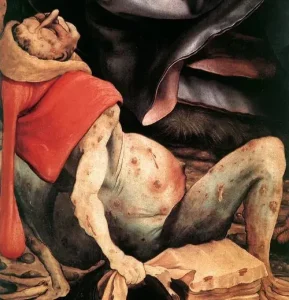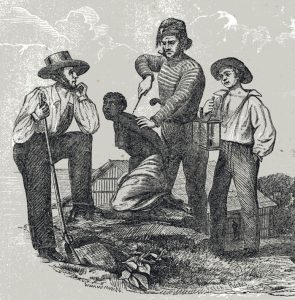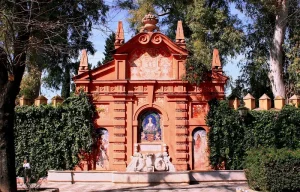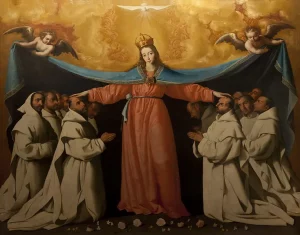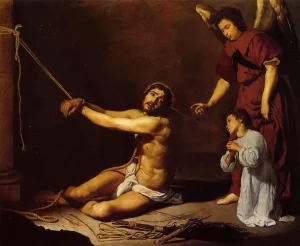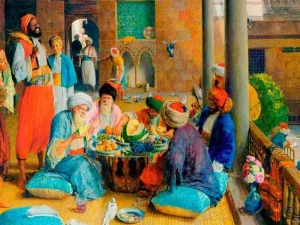El Elefante de Marfil, de Nerea Riesco



Esta novela pretende trasladar al lector a la Sevilla del Siglo XVIII, a través de la vida de Julia de Haro, León, y sus descendientes, en una saga familiar que se va dejando en herencia una partida de Ajedrez comenzada cinco siglos antes, en época de La Conquista, entre Alfonso X el Sabio, hijo del Rey Fernando III y Axafat, el gobernador almohade de la que era aún Isbiliya. De la resolución de esa partida inacabada depende el destino de la Giralda. Toda la trama está aderezada por amores, celos, aventuras, secretos y misterios que se prolongan por tres generaciones.
Pero lo mejor y más disfrutable del libro son los hechos históricos que se narran, como el terremoto de Lisboa de 1755, las procesiones, los avatares de la ciudad, el mundo de las imprentas, las órdenes religiosas implicadas en la trama, las descripciones urbanas, sus costumbres y el paisanaje humano con sus distintas clases sociales, incluyendo esclavas, toreros, bailaoras, bandoleros… algunos de estos personajes secundarios llegan a resultar más interesantes que los protagonistas.

Riesco es tremendamente hábil para transmitirnos con su escritura la sensualidad de olores, sabores y sensaciones, y así el erotismo de los amores en esta novela está magníficamente narrado, con tintes poéticos. Lo cual no es de extrañar en una autora que ha publicado un poemario erótico (Desnuda y en Lo Oscuro). Por otro lado a veces el devenir amoroso de los personajes lastra en cierta medida la trama que se prolonga demasiado, esa partida que a veces parece muy apremiante y sin embargo es abandonada por décadas en la vida de esta familia. Si por un lado esto resulta realista, ralentiza el avance de la novela.
No deja de ser curioso que veamos por momentos claras influencias de Dan Brown (El Código Da Vinci) o de Catherine Neville (El Ocho), a las que creemos que El Elefante de Marfil supera en calidad, y también ecos del Realismo Mágico, aunque más de Allende que de García Márquez.
En conclusión, es un libro muy recomendable para los amantes de la ficción histórica, adictivo, con todos los ingredientes imprescindibles del género, y además personajes femeninos muy poderosos y determinados que se enfrentan a las ideas imperantes en su época y en sus familias, protagonistas en las tramas de manera absoluta, y por supuesto, unas adelantadas a su tiempo, además Julia de Haro está inspirada en una mujer real que dirigía la imprenta que fue de su marido al quedarse viuda, algo relativamente frecuente en aquella época.

El Elefante de Marfil, de Nerea Riesco
Estas disposiciones no fueron duraderas ni eficaces, pero nos habla de unos hechos a menudo desconocidos y de los que no se suele hablar, ni siquiera en los centros educativos. Pero merece la pena imaginar una Sevilla con un porcentaje llamativo de población negra, muchos de ellos llevando una carimba en el rostro, tal vez con el anagrama “ESCLAVO”, una S y un clavo (la primera que aparece en la imagen); aunque el carimbo se usó mayormente en las colonias americanas, mucho más difíciles de controlar por las autoridades. Otra curiosidad es que los hierros de carimbar se guardaban bajo llave en dependencias administrativas de la autoridad, o sea, que la carimba estaba perfectamente regulada por las leyes, y era como nuestros sellos de aduanas o de control de la CE o la matrícula en los coches, pues no se les consideraba más que mercancía. Y, además, por mandato real, los custodios y encargados de carimbar no podían cobrar por ello o cobrar, en todo caso, muy poco para evitar que se convirtiera en un negocio, como ya había ocurrido en algunos lugares.
Hasta 1679 no se suprimió la esclavitud indígena en los dos virreinatos y el carimbo aún tardaría un siglo más en ser prohibido completamente, ya en época ilustrada.

